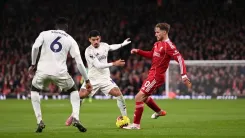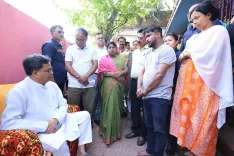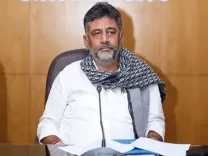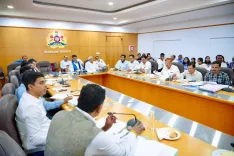Did the Bhutan Car Smuggling Scandal Involve Mammootty, Dulquer Salmaan, and Prithviraj Sukumaran?

Synopsis
Key Takeaways
- ED raids involve high-profile individuals in the film industry.
- Investigation centers on illegal vehicle imports.
- More than 150 vehicles are under scrutiny.
- Legal challenges are ongoing for seized vehicles.
- The case raises questions about accountability among public figures.
Kochi, Oct 8 (NationPress) The Bhutan luxury car smuggling scandal escalated on Wednesday as the Enforcement Directorate (ED) conducted coordinated raids at 17 sites throughout Kerala and Tamil Nadu. Among those targeted were the residences of prominent Malayalam actors Mammootty, his son Dulquer Salmaan, Prithviraj Sukumaran, and Amit Chakkalakkal.
The searches took place at Mammootty’s home in Elamkulam, Dulquer’s properties in Kochi and Chennai, Prithviraj’s residence, and Amit Chakkalakkal’s house in Kadavanthra.
Raids also reached automobile dealers in five different districts.
The ED indicated that these actions are associated with breaches of the Foreign Exchange Management Act (FEMA).
This operation was initiated based on credible intelligence regarding a syndicate involved in the illegal importation and registration of high-end vehicles like the Toyota Land Cruiser and Land Rover Defender via routes from Bhutan and Nepal.
Officials allege that counterfeit documents, allegedly from the Indian Army, the US Embassy, and the Ministry of External Affairs, were utilized to secure fraudulent vehicle registrations in Arunachal Pradesh, Himachal Pradesh, and other states.
The vehicles were subsequently sold to customers, including celebrities, at significantly lower prices.
The raids were executed a day after the Kerala High Court allowed Dulquer to approach Indian Customs for the release of his confiscated vehicle under “Operation Numkhoru”.
The court instructed Customs to evaluate such requests within a week of submission, provided valid ownership documents and security are presented.
Dulquer’s legal team contended that the seized vehicle was legally imported in 2004 for the Red Cross with ministerial clearance and later obtained through authorized transactions.
However, Customs asserted its authority to retain the car, citing an ongoing investigation and intelligence reports.
It is estimated that more than 150 illegally imported vehicles are currently in Kerala, with approximately 40 already confiscated.
Two additional cars belonging to Dulquer were previously seized, a decision he chose not to contest.
The court also questioned Customs regarding the disclosure of owner information and the evidence supporting claims of fraudulent registration. The outcome now depends on whether Dulquer's release request under Section 110(A) of the Customs Act, 1962, is approved.
The ED's concurrent investigation is likely to expand the inquiry, potentially involving more high-end vehicle owners in the scrutiny.









